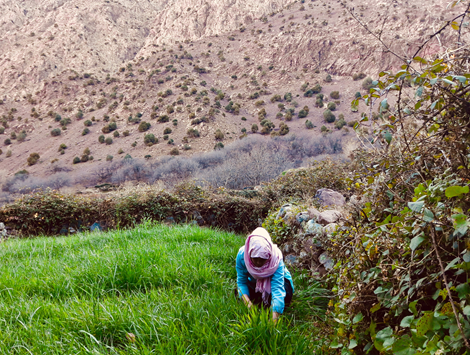
Timichi, nestled in the High Atlas range, faces challenges due to its remote location and limited access to basic infrastructure. With 18 households, the village struggles with poor road infrastructure and unreliable transportation, hindering access to social services. However, its lush terraced gardens and historical significance attract tourists during certain seasons.
History & Socio-Economic Characteristics:
Founded before the colonial period by three brothers, Timichi served as the valley’s capital. Following independence, migration to the lowlands increased, driven by economic hardship. Today, Timichi is home to 145 residents, primarily from two families. While men seek work outside the village, women manage household responsibilities and contribute to subsistence farming.
Needs & Opportunities for Intervention:
Timichi faces multiple challenges, including waste management, limited cash income, lack of preschool facilities, and healthcare access. Water scarcity in summer affects agriculture, exacerbating food insecurity. Proposed interventions include constructing a water reservoir and renovating irrigation canals, aiming to improve agricultural productivity and nutrition.
Project Design:
The proposed project focuses on addressing water scarcity through infrastructure development and agricultural workshops. The construction of a reservoir and canal renovation aims to enhance water access for irrigation, benefiting Timichi and neighboring villages. Workshops will provide training on sustainable farming practices and dietary education to improve food security and livelihoods.
Conclusion:
The project seeks to address critical challenges facing Timichi’s community, aiming to enhance agricultural productivity, food security, and economic opportunities. By integrating infrastructure development with capacity-building initiatives, the project aims to create sustainable solutions and improve the well-being of residents in the region.